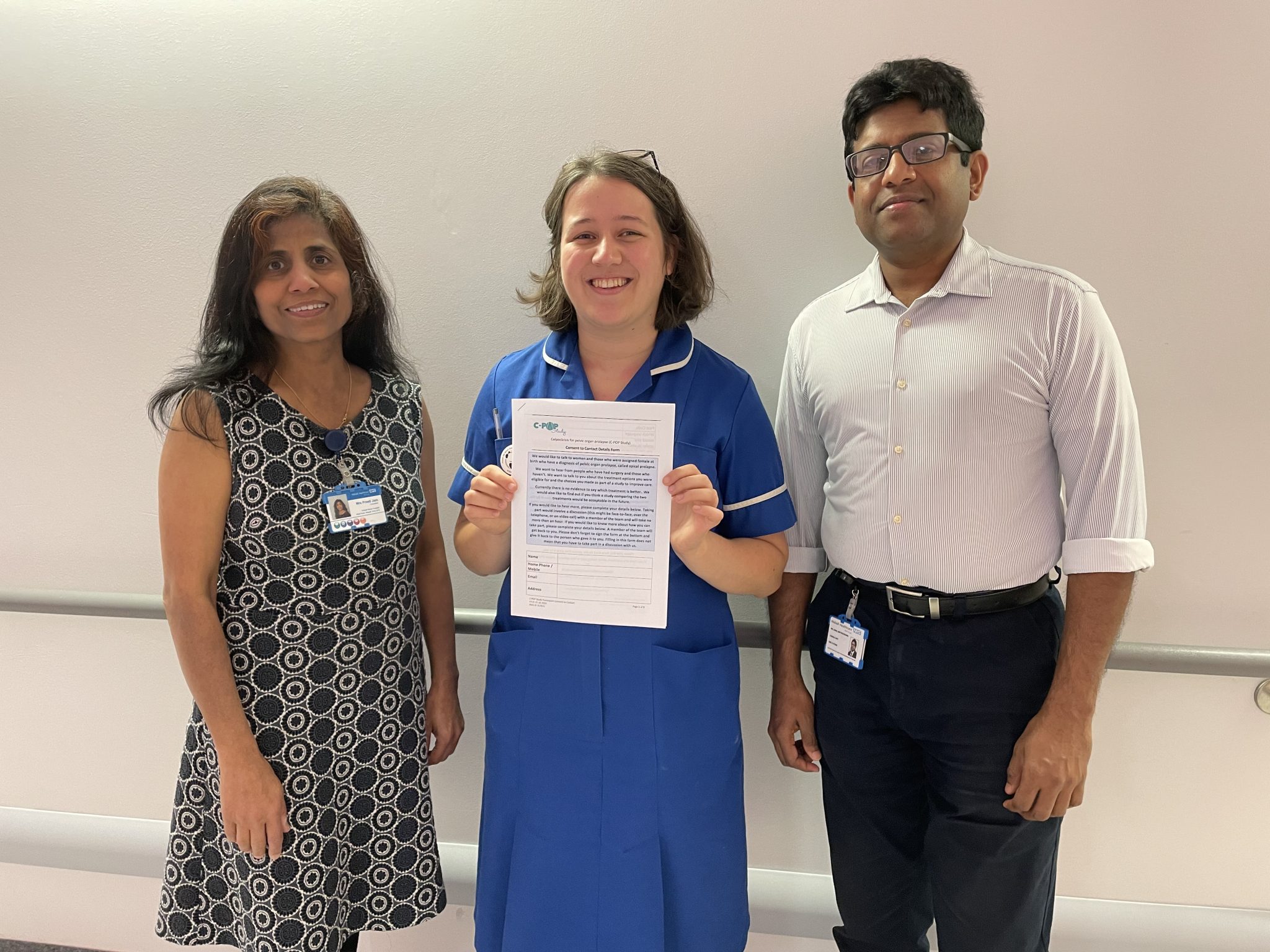Women are being invited to take part in a new Gynaecology study offered through Walsall Healthcare NHS Trust, with researchers particularly keen to ensure patients from ethnic minorities add their voice to this important piece of work.
A pelvic organ prolapse is when uterus, bladder or bowel bulge into the vagina, which can cause pain and problems passing urine.
Approximately one in two women experience some degree of pelvic organ prolapse in their lifetime. For the majority, this can be managed with non-invasive measures such as pelvic floor exercises and pessaries, but some require surgery to manage their condition.
The C-POP study is comparing the effectiveness of Colpocleisis with sacrospinous fixation in women with Pelvic Organ Prolapse.
Colpocleisis involves pushing the prolapse back inside the pelvis and closing the top of the vagina. This is the simpler of the two surgeries but will affect a woman’s ability to have vaginal intercourse.
A more complex surgery, sacrospinous fixation, avoids this problem around vaginal intercourse by stitching the top of the vagina to a ligament in the pelvis.
There is currently no evidence to indicate which surgery is the better option.
This research is being led by the University of Birmingham with Mrs Preeti Jain, Gynaecology Consultant, the Principal Investigator for Walsall Healthcare.
Mrs Jain said: “We’re so proud to be supporting this gynaecological study through Walsall.
“Pelvic organ prolapse can seriously affect patients’ quality of life – both from a physical perspective and a mental health and wellbeing perspective.
“It can be uncomfortable and lead to other problems such as bladder control and sufferers often find their confidence is affected because they don’t feel able to take part in as full and active a lifestyle as they’d like.
“We’re now talking to service users and spreading the word that the study is open to encourage women to come forward and be a part of research that has the potential to change lives for the better.”
Hannah Cook, Clinical Research Midwife, added: “There are still significant gaps in the evidence when it comes to women’s health. I am passionate about taking on studies that really listen to the women we care for.
“The University of Birmingham is looking to hear from women who have had or are waiting for surgical treatment for a pelvic organ prolapse. The team wants to find out more about what matters to them when making the decision to have surgery, and hear their thoughts to help plan future studies.”
If you have had or have been offered surgery to manage pelvic organ prolapse and would like to find out more about taking part in the C-POP study, please contact the study team on 0121 414 3024 or 07717 444813. Email cpopstudy@contacts.bham.ac.uk and read more here C-POP Study – University of Birmingham
This study is funded by the National Institute for Health and Care Research (NIHR).

